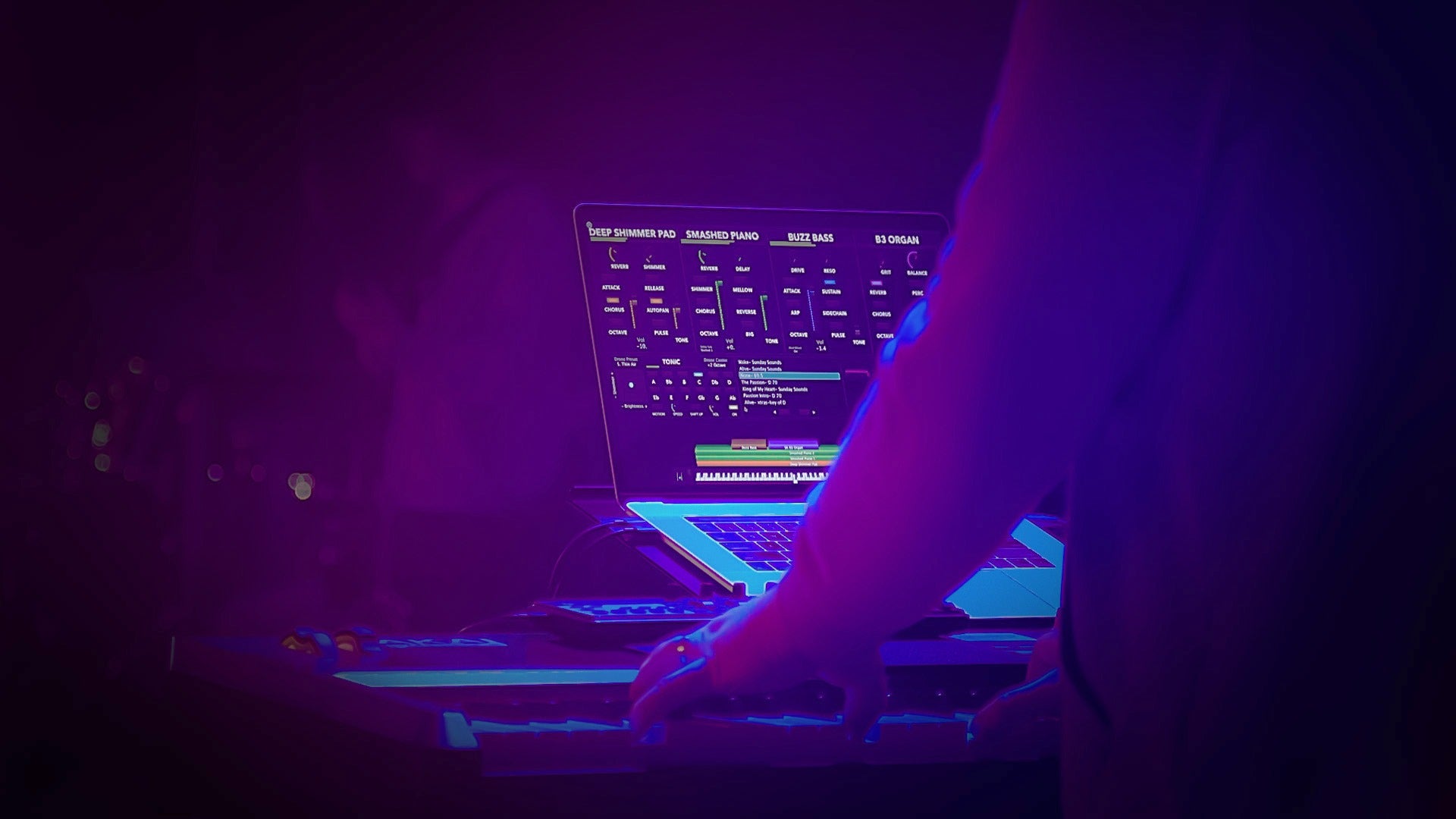There’s been a lot of talk lately about using tracks in worship.
Do they help or hinder? Are they just for big churches?
Are tracks complementary, or karaoke?
Tracks can have a huge impact on how things sound in the room, but that's not the only reason worship teams use them!
And using tracks can open up real (and sensitive) conversations about the worship team you have, their skills, and how they feel about all of it.
We brought together two worship keys players for an honest conversion, covering the struggle, the benefits, the controversy, and even the pressure to sound perfect.
This conversation will give you real, practical insights, especially if you’ve ever wrestled with the why behind tracks.
Whether your church is currently using tracks, considering tracks, or even on the other side of the table, I'd love to hear your take, so make sure to watch the video and leave a comment!


TOTALLY agree with one thing mentioned in the video… it’s important for keys players to communicate (preferably in advance) what you’re going to be covering, so tracks can be muted, combined, etc. I too have felt like I didn’t matter as much when I heard the tracks playing what I was covering (and that’s a ME problem). Many times I never communicated what I was doing, and we can’t expect a sound engineer or worship leader to pick up all the different parts and know what’s coming from where if we don’t talk about it. We need to be our own advocates. And it’s also well within the worship leader’s right to ask us to just focus on one part if they feel like that serves the song in a better way.
I have experienced both using multitracks and playing with only live instruments. They can be useful if you literally have no live players that can effectively lead the songs or to add them in sparingly to provide more depth. I tend to believe that there needs to be a difference between trying to sound like the record or live band. There is a huge difference, and quite obvious. I know of mega churches that have all of the talent in. the world at their disposal and still use backing tracks. Why?
It also can become way to easy to rely on the tracks to sound good rather than to develop talent, which is hopefully a goal of a minister-to help equip people. Less is more.
We use tracks for click and prompt, cues, etc. When tracks instrumental tracks are being used to fill out the sound, I generally don’t have an issue with it. Things like extra pads and “motion arps”, extra guitar tracks, sub bass, and even some auxiliary perc are what we tend to use most. Block chords coming from a piano track when I’m playing a Hammond, or vice versa, happens sometimes… but most times I try to cobble together a live track with parts from both. As a keys player I try to play the parts that stand out at any one point in the song, and I don’t want an organ solo coming through or having a prominent synth lead in the tracks where I’m not the one playing it. I don’t like being able to look on a stage and realize there are obvious parts of the song being heard in the room that aren’t being covered live. Granted most people aren’t going to notice this… but this is my take. Especially for vocals. If a choir all of a sudden shows up in the tracks, and there’s one or two people singing, that’s a bit obvious to me.
Tracks, discourage any tracked musicians from doing their reasonable service of worship. As a professional worship keys player for decades now, be biblical, teach your children to be worshipers, 1st sons of asaph, we’re taught by their fathers to be ministers generational leaders, teaching the next generation, and the next generation. Follow the pattern….. just saying it is all in the panoply of scripture.
Tracks, discourage any tracked musicians from doing their reasonable service of worship. As a professional worship keys player for decades now, be biblical, teach your children to be worshipers, 1st sons of asaph, we’re taught by their fathers to be ministers generational leaders, teaching the next generation, and the next generation. Follow the pattern….. just saying it is all in the panoply of scripture.